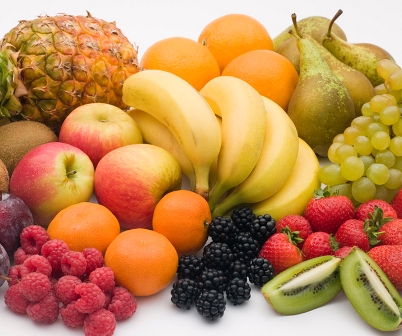Enzymes are proteins that have unique abilities. They’re present in all living cells and are needed for every chemical reaction in the body. Each enzyme performs its own specific task. Our bodies produce different types of digestive enzymes to break down the food we eat. Digestive enzymes are secreted all along your digestive tract, starting in the mouth with salivary amylase, which helps break down starches. From there, other enzymes are produced in the stomach, pancreas and small intestine.
You can also get digestive enzymes from raw foods and supplemental digestive enzyme products. Raw foods naturally contain their own enzymes, but once raw foods are processed or cooked, their enzymes are destroyed. Supplemental digestive enzymes are sold in many health-food stores and pharmacies. They’re “generally recognized as safe” (or GRAS) by the FDA and come from different sources, such as animal, plant, fungal and bacterial.
Animal Enzymes-
Animal enzymes, also called glandular, may come from the pancreas of hogs or oxen. Enzyme products from animals are usually in coated capsules in order to pass through the acidic environment of the stomach unharmed.
Plant Enzymes-
Plant enzymes, such as bromelain from pineapple and papain from papaya, are called proteolytic enzymes because they break down protein. Although these may have certain benefits, there are potential allergies, contraindications and medical interactions with these enzymes.
Fungal and Bacterial Enzymes-
Fungal and bacterial-source enzymes are also known as plant-based, although “vegetarian” is a more appropriate word to describe these digestive enzymes. Unlike animal-source enzymes, vegetarian enzyme supplements don’t need to be coated because they can work in a broad pH range.
Why Digestive Enzymes Are Important-
Nutrition isn’t just about the types of food we eat: Those foods need to be broken down, the nutrients absorbed and utilized and, finally, eliminated. Many have enzyme deficiencies due to age, diet or lifestyle (i.e., they may be lacking or not producing enough of a certain digestive enzyme). When you’re not digesting foods well, you may experience such symptoms as occasional gas, bloating, indigestion, irregularity or other digestive challenges.
How Digestive Enzyme Supplements Can Help-
People whose bodies don’t produce enough digestive enzymes often take digestive enzyme supplements to help with specific food intolerances. According to the NIH, 30 million to 50 million Americans are lactose intolerant because their bodies don’t produce enough of the enzyme lactase, which digests lactose.
Similarly, recent studies have looked at the benefits of certain enzymes for people with gluten intolerance (not to be confused with celiac disease). DPP-IV is an enzyme that breaks down the casein in dairy and the gluten found in wheat, barley and rye.
What to Look for in a Digestive Supplement
There are many enzyme supplements on the market today. But before you buy, make sure you look at the source, blends and activity listed on the label. Do you have specific food intolerance or digestive issues? Find blends that have enzymes for your specific needs:
The three main groups of enzymes are proteases, lipase and carbohydrases. Protease digests protein, lipase digests fats and carbohydrase digests carbs. Additionally, look for accurate labeling of enzyme activity. The potency of an enzyme is a way to measure the effect it has on things such as protein, fats and carbohydrates. Weight (i.e., measurement in milligrams) does not measure the true potency of an enzyme.
 Best Digestive Enzyme Expert Reviews of Digestive Products
Best Digestive Enzyme Expert Reviews of Digestive Products

